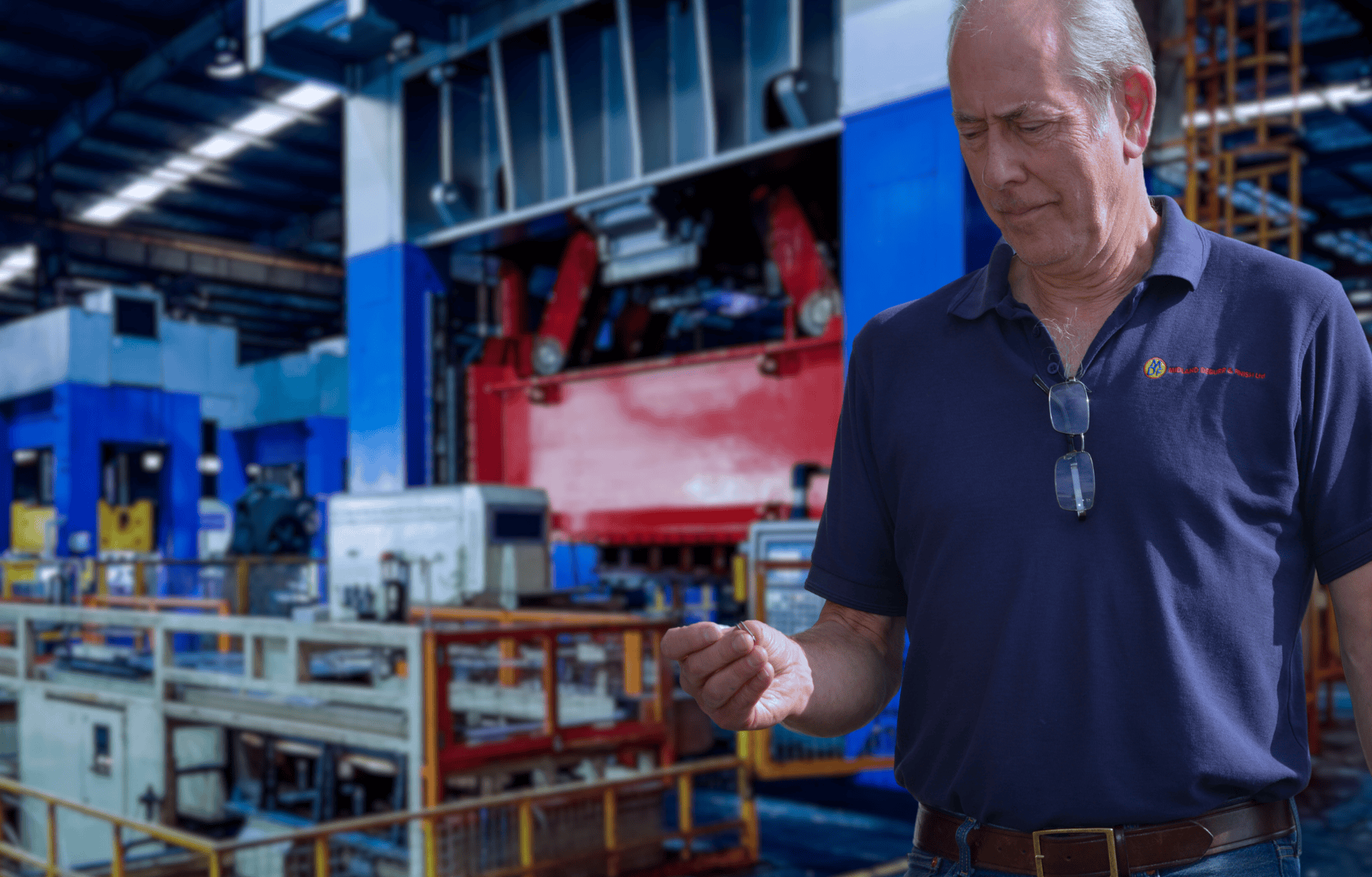Talking To Our Customers; How Midland Deburr & Finish Keeps Presswork Perfect

Managing Director Chris Arrowsmith has had more than a few conversations with presswork customers lately. The message he’s hearing is loud and clear: they’ve never had to work so hard just to keep things moving.
“There’s a real sense across the board that the pressure has gone up — costs, turnaround times, quality standards, everything,” Arrowsmith says. “But the encouraging part is that the hard work is paying off. The businesses that have doubled down on quality and consistency are the ones now standing out.”
For Midland Deburr, that relationship with pressworkers is built on trust and technical know-how. Many of the pressed components arriving at their Lye facility are destined for high-stakes applications in sectors like automotive, defence, and clean energy — and they can’t afford to fail. Whether it’s a bracket for a braking system or a casing for a control unit, the job is the same: eliminate burrs, remove contaminants, and send the part back into the supply chain, flawless and ready for final assembly.
“A burr might be barely visible to the naked eye,” Arrowsmith explains. “But in the wrong context, it can cause serious issues — from premature wear to mechanical failure. Our job is to make sure those risks never leave the factory.”
The process involves more than just a rinse and polish. Degreasing ensures that no machining oils or press lubricants linger on the component surface, which is vital not only for aesthetics but also for coating and bonding processes down the line. A trace of residue might seem insignificant — but in a high-performance assembly, it can be the difference between reliability and recall.
Arrowsmith is quick to highlight that the work his team does is not a luxury add-on. “There’s a mindset sometimes that surface finishing comes last — that it’s a nice-to-have. But we’re dealing with parts that go into vehicles, infrastructure, even aerospace applications. There’s no margin for error.”
That’s a sentiment echoed across the presswork sector, which has faced mounting challenges in recent years. From Brexit-induced supply chain disruption to rising energy prices and material shortages, component manufacturers have had to rethink how they operate — and who they partner with.
“What we’re seeing now is a shift toward real collaboration,” Arrowsmith says. “Pressworkers know that if there’s a problem with finish quality, the whole batch can be at risk. So they’re choosing partners who understand the importance of the details — and who can deliver under pressure.”
And Midland Deburr has responded in kind. Investment in new finishing equipment, tighter process controls, and expanded capacity has allowed the company to keep pace with the increasing demand for consistency, compliance, and speed. Arrowsmith’s team works closely with production planners and quality managers to ensure every part meets spec — and is ready for the next stage in the manufacturing journey.
“Ultimately, we’re here to help our customers look good in front of their customers,” he adds. “If we’ve done our job right, no one ever thinks about finishing. The part just fits, functions, and performs.”
That kind of quiet reliability is becoming more valuable by the day, especially as the UK manufacturing sector looks to rebuild confidence and momentum. While political uncertainty and global instability continue to make headlines, firms like Midland Deburr are showing that consistency, commitment, and collaboration still carry weight.
“There’s a lot of pride in what we do,” says Arrowsmith. “We might not be stamping the metal or assembling the final product, but we’re playing a part in something bigger. And when those components leave our shop, they’re ready — no burrs, no grease, no question marks.”
It’s a small but vital role in the wider manufacturing ecosystem. And as pressworkers across the Midlands and beyond continue to push for better efficiency and quality, companies like Midland Deburr & Finish are proving that when it comes to component success, how you finish matters just as much as how you start.
Quick Contact Form
